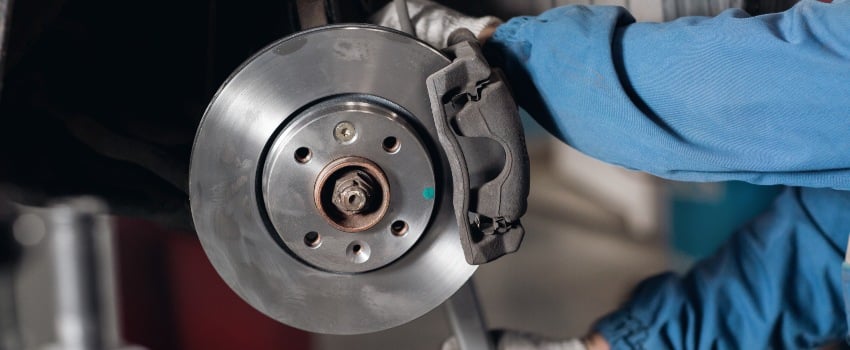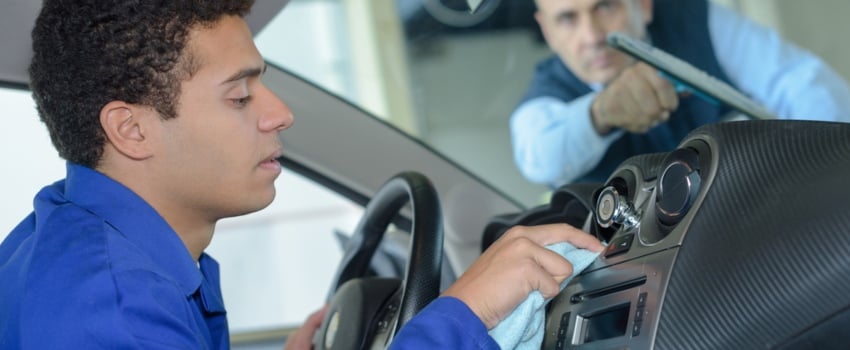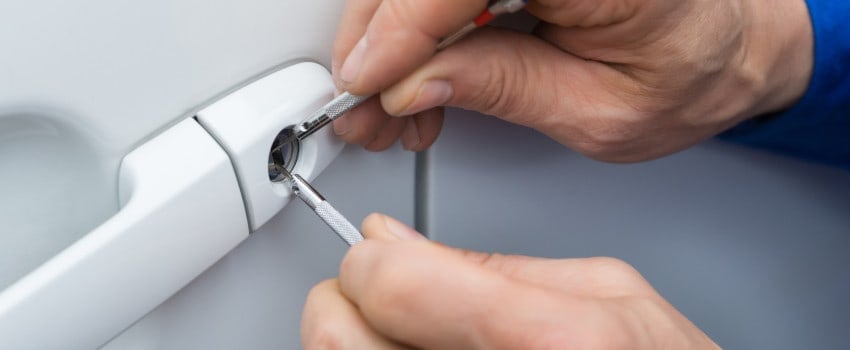Your key questions answered about brake pads on your van
One of the many advantages of using the best new van deals to bolster your fleet is that you can be sure that the brake pads of your new vans are in tip top condition. Now, this is important because they’re obviously the primary (and most effective) way to bring the vehicle safely to a halt. That means they help you to avoid crashes, preserving your property and assets, and most importantly saving lives. While you shouldn’t have to worry about the condition of your brake pads for quite some time after you’ve bought your new van, it’s still worth being up to speed (if you’ll pardon the pun) on how they work, so that you can quickly identify any issues that may develop further down the line.
WHAT ARE BRAKE PADS, AND HOW DO THEY WORK?
Brake pads are an essential aspect in your overall braking system. Basically, the typical van’s braking system consists of a brake disc, a brake calliper, and a pair of brake pads for each wheel. The calliper holds the two brake pads, with a single brake disc sandwiched between them. When you press down on the brake pedal, the mechanism pushes these two pads together, gripping the disc and causing friction, which eventually slows the disc (and therefore the wheel) to a halt. If you’ve ever tried to stop a spinning bike wheel with your hand, you’ll be familiar with the general principle. Although if so, hopefully you were wearing gloves at the time – that frictional force is quite something!
How long do brake pads last?
To be honest, there are no hard and fast answers to this question. Generally it’s anywhere between 25,000 to 60,000 miles, but the exact figure is down to a number of factors. These factors include…
Where you drive (and for how long)
If you make most of your journeys at high speeds on long stretches of motorway, your brakes can generally be relied upon to last longer than they might for stop-start inner city journeys. We probably don’t need to go into much detail as to why – more frequent and intensive use tends to quickly take its toll!
Equally, the distance is also significant. Naturally, the further and longer you drive, the more wear and tear your brake pads are subjected to. It’s worth noting, too, that the front brakes tend to be the first to go, since they take more of the braking load.
The magnitude of your payload
Basically, how much weight you’re carrying with your van also makes a major difference to the lifespan of your brakes, as greater weight naturally requires greater braking effort. That means if you’re carrying large loads or heavy cargo on a regular basis, your van’s brake pads may end up requiring more frequent maintenance. This is a big part of the reason that on the whole, the brake pads of commercial vehicles tend to require more frequent servicing than those of private commuter vehicles.


The type of brake pad you’re using
Different types of brake pads tend to have different lifespans.
Organic brake pads are the cheapest, but tend to have an accordingly short operational lifespan
Low metallic brake pads are noisier, but can be more durable than organic brake pads
Semi metallic ones can generally be relied upon to have a decent life expectancy, without the need for too much service and maintenance
Ceramic brake pads are some of the most expensive, but the upside is that they offer a durability and reliability than many van owners find to be well worth the cost
How to tell when your brake pads need replacing
The good news here is that your brake pads tend to give you a fair bit of warning when they need replacing. Here are some of the main things to look out for:
Dashboard warning light
Almost all new vans will be fitted with a dashboard warning light (and sometimes an audible alarm) that informs you when your brake pads require professional attention. If your van isn’t fitted with one, it’s best to schedule in regular inspections instead.
Loud screeching or whining
This is another type of audible warning, but one you definitely don’t want to hear. Whining noises aren’t ideal, but loud screeching or grinding noises usually indicate that the brake pads have been worn down completely, and therefore need to be replaced.
Pulling to one side
If your van pulls to one side when you brake, it’s most likely a sign of uneven wear on one of the brake pads. Obviously, it can be extremely dangerous, so if you find that you start experiencing it in an old or worn out van, make sure that you get it seen to as soon as possible.
‘Bad vibrations’
Not to be confused with the classic Beach Boys track, bad vibrations can occur when you press down on the brake pedal, and feel a ragged shaking. This is typically an indication that at least one of the brake pads has somehow warped, and is now applying uneven pressure on the disc. The official advice is the same – don’t hang around in getting it seen to!
HOW TO GET THE MOST OUT OF YOUR BRAKE PADS
There are also some handy tips and tricks you can use to extend the life of your brake pads. For example, driving as steadily as possible is strongly recommended – try to maintain a steady speed and apply the brakes gradually, rather than zooming along at top speed and then slamming them on at the last second. (Apart from causing undue wear and tear, this type of driving can also be pretty risky!) You can also avoid using the brakes unless absolutely necessary, chiefly by taking your foot off the acceleration and letting the van cruise naturally to a stop whenever possible. Finally, avoid carrying around unnecessary equipment or cargo, as the extra weight will only wear out your van’s brake pads faster!


By following these tips, you and your drivers can help save on unnecessary servicing costs and downtime, helping to maximise your return on investment when you get a van from one of our cheap new vans deals. We’ve got no shortage of them right here at Van Discount, ranging from highly popular vans like the Ford Transit to the eternally reliable Renault Trafic. Why not take a look through our stock, and see what you can find?













